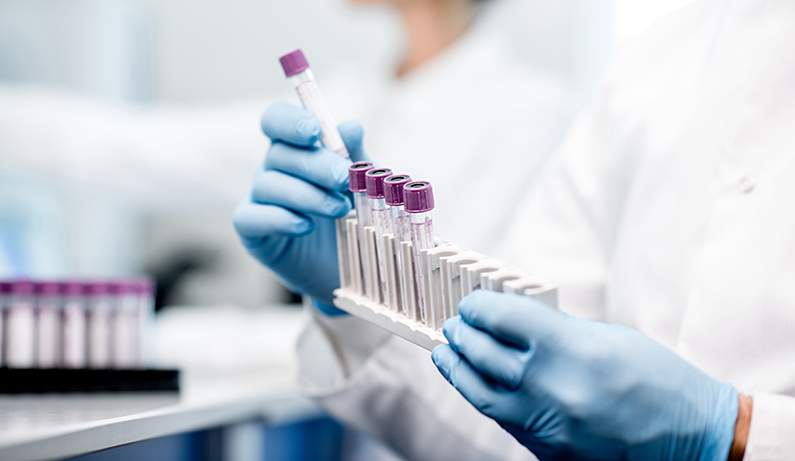Blog

HPV and Cervical Cancer: What’s the Connection?
When it comes to cervical cancer, nearly all cases are caused by exposure to the human papillomavirus, or HPV. Thankfully, cervical cancer is almost always preventable. Understanding more about HPV and cervical health, in general, can greatly help in the prevention of this kind of cancer. Here’s some important information every woman should know. HPV: The Root Cause of Cervical Cancer Cervical cancer is a disease that forms in the tissues of a woman’s cervix. The cervix is the lower part of the uterus (womb) that connects to the vagina (birth canal). According to the National...

To Wig or Not to Wig?
Some cancer patients face hair loss, also known as alopecia, as a result of cancer treatment. While this is a common side effect, losing one’s hair can still be a significant emotional challenge. The good news is that this change in appearance usually doesn’t last forever. Most cancer patients see hair re-growth begin shortly after they are finished with treatment. Until that time, however, many people turn to head coverings such as scarves and wigs to help them cope during this transition. Initially, the thought of wearing a wig may seem worrisome. There may be some concerns about...

Surviving, Thriving, & Empowering Others: Sherri’s Story
One breast cancer survivor’s story of turning a personal patient solution into a community solution By: Lori McNeill Sherri’s Story “I was shocked.” This, perhaps not surprisingly, was Sherri Romanoski’s response to being told back in 2000, at the age of 48, that she had breast cancer. “I was shocked." “It hit me hard. I was full of fear,” said Sherri. Along with that fear can sometimes come a sense of powerlessness—how do I combat a disease I don’t fully understand?—and a lot of questions. What’s my cancer treatment plan? How long will it take? What can I do outside of the doctor’s...

What Happens After Ovarian Cancer?
I’m done with Ovarian Cancer Treatment, now what? This is a common question among women who have recently gone through treatment for ovarian cancer–and rightfully so. While the thought of remission can bring a sense of relief, there are also concerns about what other challenges may lie ahead regarding lifestyle changes, fertility, and the possible chance of recurrence. If you have recently finished ovarian cancer treatment it is important to remember to give yourself time to adjust to any physical and emotional changes you are going through. Eventually, ovarian cancer survivors...

Essential Oils and Cancer Treatment Side Effects
11 common essential oils used in aromatherapy for managing cancer symptoms and side effects include: Lavender: used to relieve stress, improve sleep, reduce inflammation, and treat depression Eucalyptus: used to invigorate, reduce fever, and fight migraines and bacterial infections Geranium: used to ease anxiety, reduce depression, and promote sleep Tea tree (Melaleuca): can ease pain, reduce inflammation, and fight bacteria. Lemon: used to get relief from pain, anxiety, nausea, and vomiting Chamomile: used to soothe, promote sleep, and support the immune system...

6 Signs and Symptoms of Ovarian Cancer That Every Woman Should Know
6 ovarian cancer signs and symptoms every woman should know: Changes in appetite Bloating or increase in abdominal girth Frequent urination Changes in menstruation Discomfort in the pelvis Low energy September is Ovarian Cancer Awareness Month, so it's a good time to learn more about early detection and save lives. About 22,000 women are diagnosed with ovarian cancer each year in the US. While about half of all cases happen in women who are age 63 and older, all women face some risk of developing the disease. Certain risk factors, including being overweight and a...

5 HPV Myths (and the Truth About Them)
Although the human papillomavirus (HPV) is quite common, there is still a lot of confusion when it comes to the facts. But in order to protect your health – and those you love – it’s important to break through the myths you may have heard about HPV. Here are five common HPV myths and the truth about them. HPV Myth #1: Only women can get it. Truth: HPV is a very common virus among both women and men. An estimated 80% of sexually active people will contract it at some point in their lives. Although most HPV infections go away on their own, infections that don’t go away (persist) can cause...

Genetic vs Genomic Testing: What’s the Difference?
Although the terms “genetic” and “genomic” are often used interchangeably, they are actually very different. Learning more about the differences between them can help clear up some of the confusion we often see related to hereditary genes linked to developing cancer. Genetic Testing Genetics usually refers to the study of specific, individual genes and whether they are passed from one generation to the next. Cancer researchers have studied hereditary gene mutations (changes) that can play a role in the development of cancer. Genetic tests are medical tests that look for certain...

Are You High Risk for Developing Colon Cancer?
A Simple Test Could Tell You! Cancer researchers from Johns Hopkins have concluded that some patients may develop colon cancer due to two specific digestive bacteria that form a film on the colon. According to the study paper, which was published December 2015 inScience magazine, these two types of bacteria invade the protective mucous layer of the colon and create a small ecosystem, including nutrients the bacteria need to survive, causing chronic inflammation and subsequent DNA damage that supports tumor formation. These findings also seem to add to the growing evidence that...

Alcohol and Its Link to Cancer
A variety of studies have shown that an occasional glass of red wine has been demonstrated to have a positive effect on heart health. Also, beer has been linked to "some benefit against cardiovascular disease”, according to a study published in the peer-reviewed journal Nutrition, Metabolism and Cardiovascular Diseases. And, at least one study by the European Journal of Cancer Prevention suggests alcohol could reduce the risk of Hodgkin lymphoma. However, before you pop a cork and say “Cheers” this holiday season, there are some cancer-related risks you...


